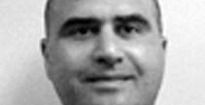Army Missed Signs of Ft. Hood Attack
A Senate investigation into the Fort Hood shooting faults the Army and FBI for missing warning signs and failing to exchange information that could have prevented the massacre.
The report concludes that systemic and cultural problems caused military officials to fail to recognize signs that the alleged shooter, Maj. Nidal Malik Hasan, was becoming increasingly radical before the 2009 shooting.
It also concludes that the FBI failed to share information with the Army - notably, e-mails that Hasan exchanged with a "suspected terrorist," a likely reference to Anwar al-Aulaqi, an Islamic cleric well known for his extremist views. The report says the agency might have dismissed such clues to avoid causing "a bureaucratic confrontation."
At a news conference to release the report, Sen. Joseph I. Lieberman (I-Conn.) said that the investigation's "painful conclusion is that the Fort Hood massacre could have and should have been prevented."
In particular, Lieberman said that the report, issued by the Senate Homeland Security and Governmental Affairs Committee, indicated that the FBI had compelling evidence of extremism that should have led to Hasan's military discharge and made him the subject of a counterterrorism investigation.
FBI and Army officials said in separate statements that their institutions have implemented numerous preventative steps since the Fort Hood shooting.
"We appreciate the committee's efforts to examine circumstances surrounding the Fort Hood shooting incident, and we will closely examine the report's findings and recommendations," said Army spokesman Col. Tom Collins.
The FBI said in a statement that although the report suggests further change is needed, it also "recognizes the FBI's substantial progress and many successes."
The report was the latest in a series of investigations looking into the Fort Hood shootings, which left 13 people dead. Last year, a Pentagon review found that several officers failed to intervene in Hasan's career as an Army psychiatrist despite widespread signs of his radicalization and shortcomings as a soldier.
As a result, the military began requiring soldiers to report behavior by fellow soldiers that might indicate extremism. That information will be included in a database maintained by the Army's head of counterintelligence.
Yet another report - an ongoing one commissioned by the FBI - has identified several areas in which the FBI could improve its efforts to share information and improve training in its Joint Terrorism Task Force, a group heavily criticized in the study released Thursday.
The new Senate report highlighted one contentious issue that has become a running debate throughout the various investigations - whether the Fort Hood shooting was an act of terrorism. The report by Lieberman and Sen. Susan Collins (R-Maine) highlighted the debate on the issue, noting that the Defense Department "still has not specifically named the threat represented by the Fort Hood attack as what it is: violent Islamist extremism," but instead defined it as workplace violence or described it as being under the larger umbrella of extremism.
Lieberman, chairman of the homeland security committee, and Collins, the ranking Republican, have long pointed to the Fort Hood shootings as evidence of wider systemic problems in the fight against domestic terrorism.
And in their report, the senators argue that the Pentagon's avoidance of the "Islamist extremist" in the Fort Hood case underlines its failure to train officers to distinguish the peaceful practice of Islam from its violent extremist branches.
Click here to read more.


